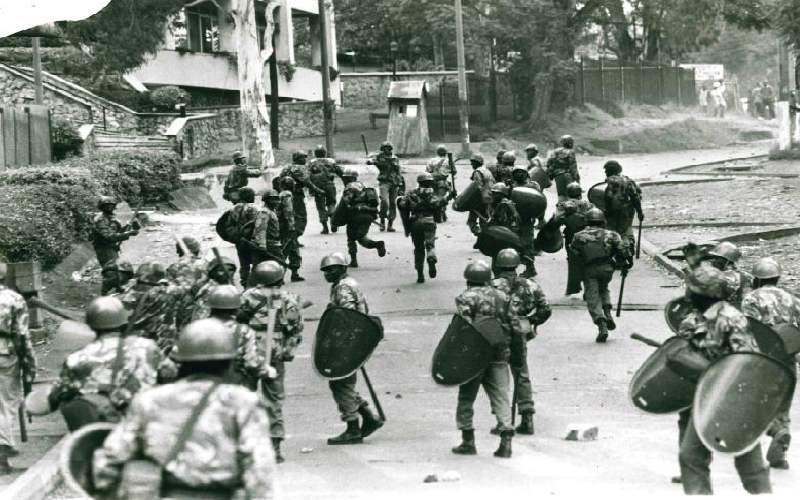×
The Standard e-Paper
Stay Informed, Even Offline

Riot police disperse university students during the Saba Saba in Nairobi on July 1997. (File, Standard]
The second liberation struggle, whose turning point was July 7, 1990, was not an easy one. Until then, Kenya was a one party State with very little space for divergent political views.